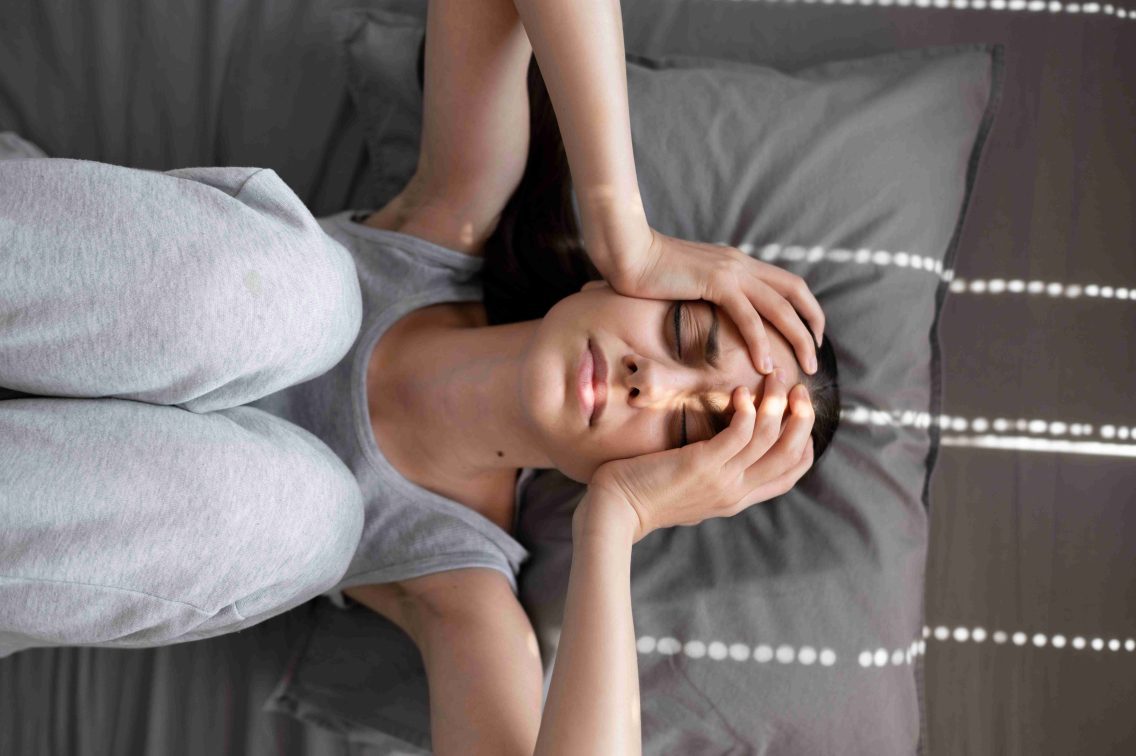Residual Schizophrenia: Breaking Barriers

Schizophrenia is a complex mental disorder that affects millions of people worldwide, and within this vast landscape lies a lesser-known but equally impactful aspect – residual schizophrenia.
As we dive deeper into this topic, we’ll unravel the mysteries of residual symptoms, causes, treatments, and everything in between.
Schizophrenia is often surrounded by misconceptions, stigma, and fear, making it essential to bring awareness to its various forms and manifestations.
By learning about residual schizophrenia, we aim to foster understanding and empathy for those living with this chronic condition.
So, join us as we take a closer look at residual schizophrenia:
How Can We Define Residual Schizophrenia?
Residual schizophrenia is a chronic phase of schizophrenia characterized by a history of at least one episode of schizophrenia but with less prominent positive symptoms (e.g., hallucinations and delusions).
Instead, individuals in the residual phase might experience negative symptoms (e.g., social withdrawal, flat affect) and mild cognitive impairment, but they would not meet the full criteria for a current episode of active schizophrenia.
What Are The Symptoms Of Residual Schizophrenia?
These residual schizophrenia symptoms can vary from person to person but may include:
Social withdrawal
Difficulty or reduced ability to engage in social interactions or maintain relationships.
Affective flattening
A reduced range and intensity of emotional expression.
Alogia
Limited speech output, poverty of speech, or difficulty conveying thoughts and ideas.
Anhedonia
Reduced ability to experience pleasure or interest in activities that were once enjoyable.
Difficulty with attention and concentration
Reduced ability to focus or concentrate on tasks or conversations.
Lack of motivation
Decreased drive to initiate and sustain purposeful activities.
Impaired self-care
Difficulty in taking care of oneself and engaging in daily activities independently.
Mild hallucinations or delusions
Although the more severe positive symptoms (such as prominent hallucinations or delusions) may have subsided, some residual or milder forms may persist.
What Are The Causes Of Residual Schizophrenia?
The exact causes of residual schizophrenia are not fully understood, but it is likely to result from a complex interaction of genetic, environmental, and neurobiological factors.
Some potential contributors to the development of schizophrenia include:
Genetics
There is evidence that genetics play a significant role in schizophrenia risk. Having a family history of schizophrenia or certain genetic variations may increase the likelihood of developing the disorder.
Neurotransmitter Imbalances
Dysregulation of neurotransmitters, such as dopamine and glutamate, has been linked to the symptoms of residual schizophrenia.
Brain Abnormalities
Structural and functional brain abnormalities have been observed in individuals with schizophrenia, particularly in regions responsible for cognition, emotion, and perception.
Environmental Factors
Prenatal and perinatal factors, such as maternal stress, viral infections, and complications during childbirth, have also been associated with an increased risk of developing residual schizophrenia.
Additionally, exposure to certain environmental stressors during childhood and adolescence may contribute to the development of the illness in vulnerable individuals.
Residual Schizophrenia Treatments
Today, the diagnosis of residual schizophrenia is based on the presence of characteristic symptoms, rather than subtypes. Treatment for schizophrenia typically involves a combination of medications, psychotherapy, and psychosocial interventions.
Here are some common components of treatment:
1. Antipsychotic Medications
These medications are the cornerstone of residual schizophrenia treatment. They help control the symptoms of psychosis, such as hallucinations and delusions.
Antipsychotics can be divided into typical (first-generation) and atypical (second-generation) antipsychotics. The choice of medication depends on the individual’s symptoms and response to treatment.
2. Psychosocial Interventions
Various psychosocial interventions can be beneficial in managing residual types of schizophrenia. These may include:
- Cognitive Behavioral Therapy (CBT): Helps individuals identify and change negative thought patterns and behaviors associated with schizophrenia.
- Family Therapy: Involves family members in the treatment process, aiming to improve communication and reduce stress within the family unit.
- Social Skills Training: Assists individuals in developing and enhancing social skills, which can improve their ability to interact with others and function in social settings.
- Vocational Rehabilitation: Provides support for individuals to find and maintain employment or engage in meaningful activities.
3. Supportive Services
Case management and community support services can help individuals with residual schizophrenia access resources and support, such as housing assistance, financial aid, and healthcare.
Over To You
The lives of individuals grappling with residual schizophrenia deserve understanding, support, and compassion.
By raising awareness about this aspect of the disorder, we hope to break down the barriers of stigma and misconceptions.
Together, we can create a world that nurtures mental well-being and provides avenues for hope and recovery.
FAQs
What is the difference between residual schizophrenia and catatonic schizophrenia?
Residual schizophrenia is characterized by a history of significant psychotic symptoms but currently lacks prominent positive symptoms (e.g., hallucinations, delusions). People with residual schizophrenia may experience some negative symptoms, such as social withdrawal, flat affect, or reduced motivation. Despite the reduction in positive symptoms, residual schizophrenia still impacts daily functioning and may require ongoing treatment and support.
On the other hand, catatonic schizophrenia is characterized by prominent motor disturbances. Individuals with catatonic schizophrenia may exhibit unusual body postures, repetitive movements, or catatonic stupor (a state of immobility or unresponsiveness). In some cases, they may also show echolalia (repeating others’ words) or echopraxia (imitating others’ movements). Catatonia can be severe and may lead to difficulties in communication and daily functioning.








